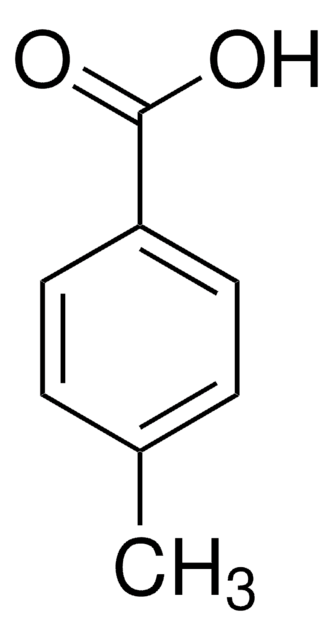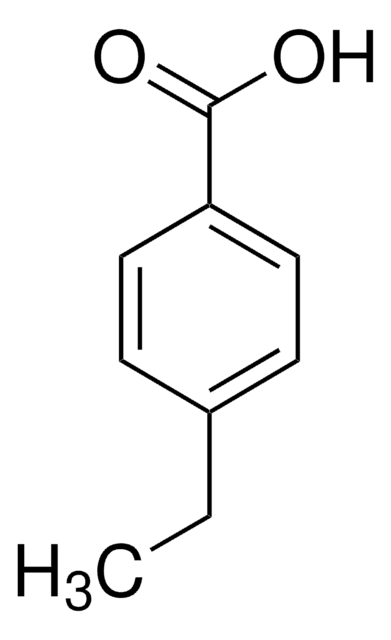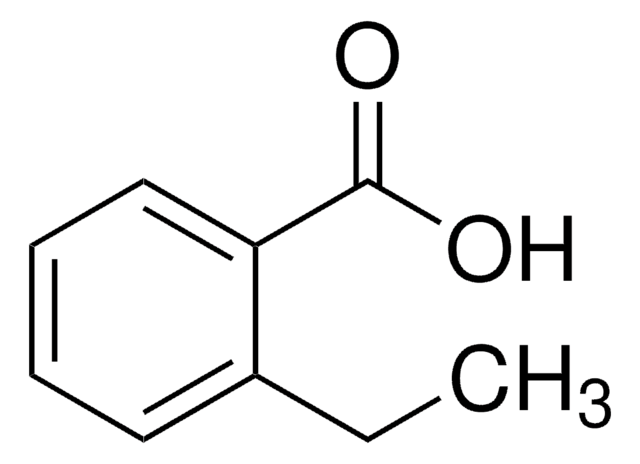255696
Calcium sulfate
≥99.99% trace metals basis
Sinónimos:
Gypsum
Iniciar sesiónpara Ver la Fijación de precios por contrato y de la organización
About This Item
Fórmula lineal:
CaSO4
Número de CAS:
Peso molecular:
136.14
Número CE:
Número MDL:
Código UNSPSC:
12352302
ID de la sustancia en PubChem:
NACRES:
NA.23
Productos recomendados
Nivel de calidad
Análisis
≥99.99% trace metals basis
formulario
powder and chunks
impurezas
≤100.0 ppm Trace Metal Analysis
cadena SMILES
[Ca++].[O-]S([O-])(=O)=O
InChI
1S/Ca.H2O4S/c;1-5(2,3)4/h;(H2,1,2,3,4)/q+2;/p-2
Clave InChI
OSGAYBCDTDRGGQ-UHFFFAOYSA-L
¿Está buscando productos similares? Visita Guía de comparación de productos
Categorías relacionadas
Descripción general
Calcium sulfate (CaSO4) is an inorganic compound with significant applications in material science, particularly due to its various hydrated forms, such as gypsum and plaster of Paris. It can be used in the production of solar thermal energy systems, where it serves as a heat transfer medium or in the construction of solar panels. Additionally, calcium sulfate can also be utilized in the formulation of electrolytes for calcium-ion batteries.
Aplicación
Calcium sulfate can be used:
- In the formulation of electrolytes for calcium-ion batteries. The presence of calcium sulfate helps in improving the solubility of calcium salts in the electrolyte.
- As a surface modifier to enhance the performance of Ni-rich lithium nickel-cobalt-manganese oxide (NCM) cathode materials in lithium-ion batteries.
Código de clase de almacenamiento
11 - Combustible Solids
Clase de riesgo para el agua (WGK)
WGK 1
Punto de inflamabilidad (°F)
Not applicable
Punto de inflamabilidad (°C)
Not applicable
Equipo de protección personal
Eyeshields, Gloves, type N95 (US)
Elija entre una de las versiones más recientes:
¿Ya tiene este producto?
Encuentre la documentación para los productos que ha comprado recientemente en la Biblioteca de documentos.
Fatemeh Gholami et al.
Chemosphere, 212, 105-113 (2018-08-26)
This study investigated the applicability of synthesized calcium peroxide (CaO2) nanoparticles for naphthalene bioremediation by permeable reactive barrier (PRB) from groundwater. According to the batch experiments the application of 400 mg/L of CaO2 nanoparticles was the optimum concentration for naphthalene (20 mg/L)
Vincoli JW
Risk Management for Hazardous Chemicals null
Claudia Fischbach et al.
Proceedings of the National Academy of Sciences of the United States of America, 106(2), 399-404 (2009-01-08)
Three-dimensional culture alters cancer cell signaling; however, the underlying mechanisms and importance of these changes on tumor vascularization remain unclear. A hydrogel system was used to examine the role of the transition from 2D to 3D culture, with and without
Nathaniel Huebsch et al.
Proceedings of the National Academy of Sciences of the United States of America, 111(27), 9762-9767 (2014-06-26)
Biological systems are exquisitely sensitive to the location and timing of physiologic cues and drugs. This spatiotemporal sensitivity presents opportunities for developing new therapeutic approaches. Polymer-based delivery systems are used extensively for attaining localized, sustained release of bioactive molecules. However
C M Belfiore et al.
Environmental science and pollution research international, 20(12), 8848-8859 (2013-06-08)
Black crusts are recognized to have been, up to now, one of the major deterioration forms affecting the built heritage in urban areas. Their formation is demonstrated to occur mainly on carbonate building materials, whose interaction with an SO2-loaded atmosphere
Nuestro equipo de científicos tiene experiencia en todas las áreas de investigación: Ciencias de la vida, Ciencia de los materiales, Síntesis química, Cromatografía, Analítica y muchas otras.
Póngase en contacto con el Servicio técnico








